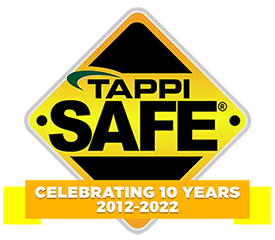 Search
Search
Use the search bar or filters below to find any TAPPI product or publication.
Filters
Content Type
Publications
Level of Knowledge
Collections
Journal articles

Magazine articles

Effects of different ammonium lignosulfonate contents on the crystallization, rheological behaviors, and thermal and mechanical properties of ethylene propylene diene monomer/polypropylene/ammonium lignosulfonate composites, TAPPI Journal January 2020
ABSTRACT: Thermoplastic elastomer (TPE), made from ethylene propylene diene monomer (EPDM) and polypropylene (PP) based on reactive blending, has an excellent processing performance and characteristics and a wide range of applications. However, there are currently no reports in the literature regarding the usage of TPE in making composite boards. In this paper, EPDM, PP, and ammonium lignosulfonate (AL) were used as the raw materials, polyethylene wax was used as the plasticizer, and a dicumyl peroxide vulcanization system with dynamic vulcanization was used to make a new kind of composite material. This research studied the influences of the AL contents on the crystallization behaviors, rheological properties, thermal properties, and mechanical properties of the composites. The results showed that the AL content had a noticeable impact on the performance of the composite board. Accordingly, this kind of composite material can be used as an elastomer material for the core layer of laminated flooring.
Magazine articles

UGA warnell school of forest resources builds mobile lab for wastewater analyses and management, TAPPI JOURNAL, December 1999, Vol. 82(12)
UGA warnell school of forest resources builds mobile lab for wastewater analyses and management, TAPPI JOURNAL, December 1999, Vol. 82(12)
Journal articles

Magazine articles

Quantification of vegetable oil in recycled paper, TAPPI JOURNAL September 2020
ABSTRACT: Vegetable soybean oil is commonly used in cooking foods that are packaged in takeaway paper-board containers. Vegetable oil is hydrophobic, and in sufficiently high concentration, could interfere with interfiber bonding and result in paper strength loss. In order to quantify the effect of oil on the resulting paperboard strength, it is necessary to quantify the oil content in paper. A lab method was evaluated to determine the soybean oil content in paper. Handsheets were made with pulps previously treated with different proportions of vegetable oil. Pyrolysis gas chromatography-mass spectrometry (pyGCMS) was used to quantify the amount of oil left in the handsheets. The results revealed a strong correlation between the amount of oil applied to the initial pulp and the amount of oil left in the handsheets.In addition, the effect of vegetable oils on paper strength may be affected by the cooking process. Vegetable oil is known to degrade over time in the presence of oxygen, light, and temperature. The vegetable oil was put in an oven to imitate the oil lifecycle during a typical pizza cooking process. The cooked oil was then left at room temperature and not protected from air (oxygen) or from normal daylight. The heated, then cooled, oil was stored over a period of 13 weeks. During this time, samples of the aged oil were tested as part of a time-based degradation study of the cooked and cooled oil.
Magazine articles

Energy: recovering capital and cutting costs, TAPPI JOURNAL, November 2000, Vol. 83(11)
Energy: recovering capital and cutting costs, TAPPI JOURNAL, November 2000, Vol. 83(11)
Magazine articles

Industry leaders: jukka harmala leads stora enso into new global age, TAPPI JOURNAL, May 2000, Vol. 83(5)
Industry leaders: jukka harmala leads stora enso into new global age, TAPPI JOURNAL, May 2000, Vol. 83(5)
Magazine articles

Using climate change policies for u.s. pulp and paper industry efficiency, TAPPI JOURNAL, July 2000, Vol. 83(7)
Using climate change policies for u.s. pulp and paper industry efficiency, TAPPI JOURNAL, July 2000, Vol. 83(7)
Magazine articles

What's new with tappi test methods?, TAPPI JOURNAL, September 2000, Vol. 83(9)
What's new with tappi test methods?, TAPPI JOURNAL, September 2000, Vol. 83(9)
Magazine articles

English as a first and second language - part 6: avoiding grammar traps, TAPPI JOURNAL, September 1998, Vol. 81(9)
English as a first and second language - part 6: avoiding grammar traps, TAPPI JOURNAL, September 1998, Vol. 81(9)
Magazine articles

Using climate change policies for u.s. pulp and paper industry efficiency, TAPPI JOURNAL, July 2000, Vol. 83(7)
Using climate change policies for u.s. pulp and paper industry efficiency, TAPPI JOURNAL, July 2000, Vol. 83(7)
Magazine articles

A waste management program for paper mill sludge high in ash, TAPPI JOURNAL, April 1990, Vol. 73(4)
A waste management program for paper mill sludge high in ash, TAPPI JOURNAL, April 1990, Vol. 73(4)






